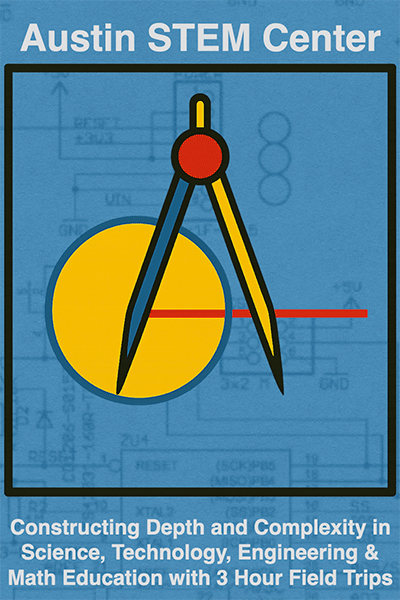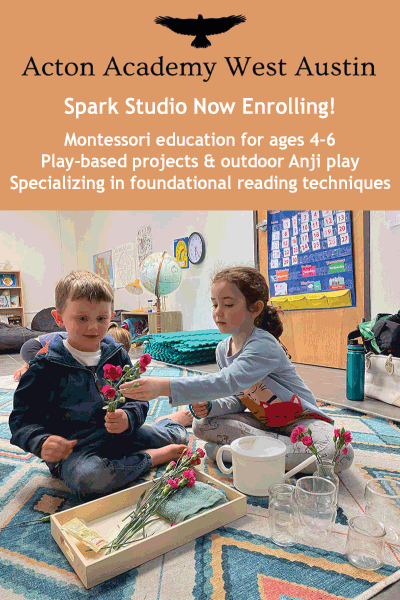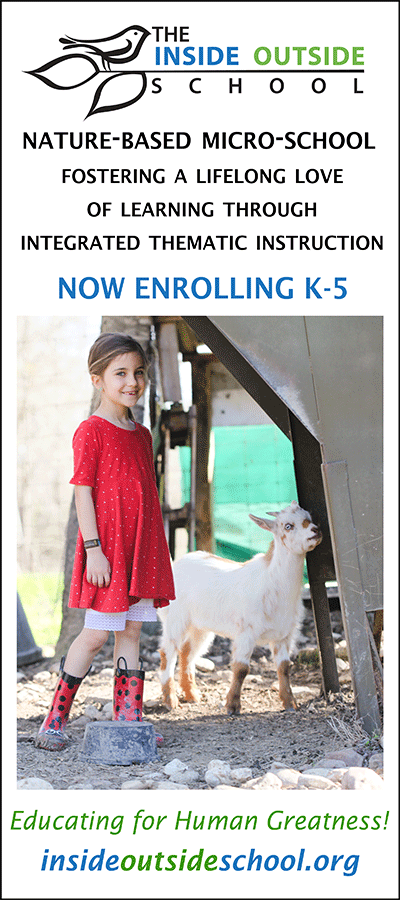Crazy in the name of education
/We, as a modern adult society, are quite literally “driving our children crazy in the name of education,” according to author and Boston College research professor Peter Gray. Speaking yesterday at the SXSWedu conference, where I’ll be reporting for Alt Ed Austin throughout the week, Gray cited numerous studies showing a marked increase since the mid-1950s in childhood psychopathology. This change is closely correlated, he said, with the expansion of in-school and homework hours and the attendant decline in children’s free play time over the same half-century. Careful to note that he could not definitively prove a causal relationship, he said that after more than thirty years of professional research and personal observation, he considers the “continual usurpation of children’s free time” to be the most likely reason for the rise in anxiety disorders, depression, and suicide among children and teenagers.
Gray, author of a widely used introductory psychology text now in its sixth edition, explained that the higher numbers are not, as some might suggest, the results of today’s better diagnostic tools or broader recognition of these disorders; rather, they reflect data from standardized assessment tools that have not changed over the decades as they have been used to measure anxiety levels and depression in normalized samples of children and adolescents. Interestingly, the psychopathology numbers do not correspond at all with economically difficult periods or wartime, Gray said; children seem to have weathered the Great Depression, World War II, and the Cold War—all shown to have been seriously stressful times for adults—with no significant increase in mental or emotional distress. What is stressful for children, Gray posited, is the lack of freedom to play and a shortage of friends to play with.
Play by definition is self-directed, Gray said. “It is nature’s means of teaching children to take control of their own lives.” We are naturally selected, he explained, to practice solving problems on our own from a very young age. Independent play, especially the kind that pushes safety boundaries—like young chimpanzees swinging just a bit too high or far—is necessary for healthy development. Animal behavior researchers believe this is about learning to regulate fear and other emotions, he said. Unlike our hunter-gatherer ancestors (and members of the few such societies that survive today), children in the United States and most other developed economies largely miss out on these crucial developmental experiences.
According to Gray, the closest modern students can come to the kind of freedom young humans experienced in the egalitarian hunter-gatherer societies that were the norm from 1.8 million years ago until only ten thousand years ago (the latter characterized as “an evolutionarily insignificant amount of time”) is in schools that follow the Sudbury model of democratic education. As a longtime observer of and sometime systematic researcher at the original Sudbury Valley School in Framingham, Massachusetts, Gray has concluded that it closely resembles the hunter-gatherer mode of education, although its founders did not set out with this goal in mind. These schools, Gray said, share the following conditions that make them work:
- unlimited freedom to play and explore—“because that's how children educate themselves”
- free age mixing
- access to a variety of knowledgeable and caring adults
- access to the culture’s tools and freedom to use them, especially the cutting-edge ones that help them prepare for the future
- immersion in a stable, moral, democratic community (in contrast to what Gray characterizes as the “tyranny” of traditional schools, where kids have virtually no legal rights)
Gray’s new book, Free to Learn: Why Unleashing the Instinct to Play Will Make Our Children Happier, More Self-Reliant, and Better Students for Life, was officially released today. It documents the evidence for his theories in detail, drawing on research in anthropology, behavioral and evolutionary psychology, and historical sources. You can also find more of Gray’s writings on play and education at his Psychology Today blog, Freedom to Learn. I would be interested in hearing your thoughts on his provocative work; please feel free to share them in the comments below.
Peter Gray will give a talk and Q&A tonight at 7:00 p.m. at the Clearview Sudbury School. It is free and open to the public. More details about the event are on Clearview’s blog and Facebook event page.













